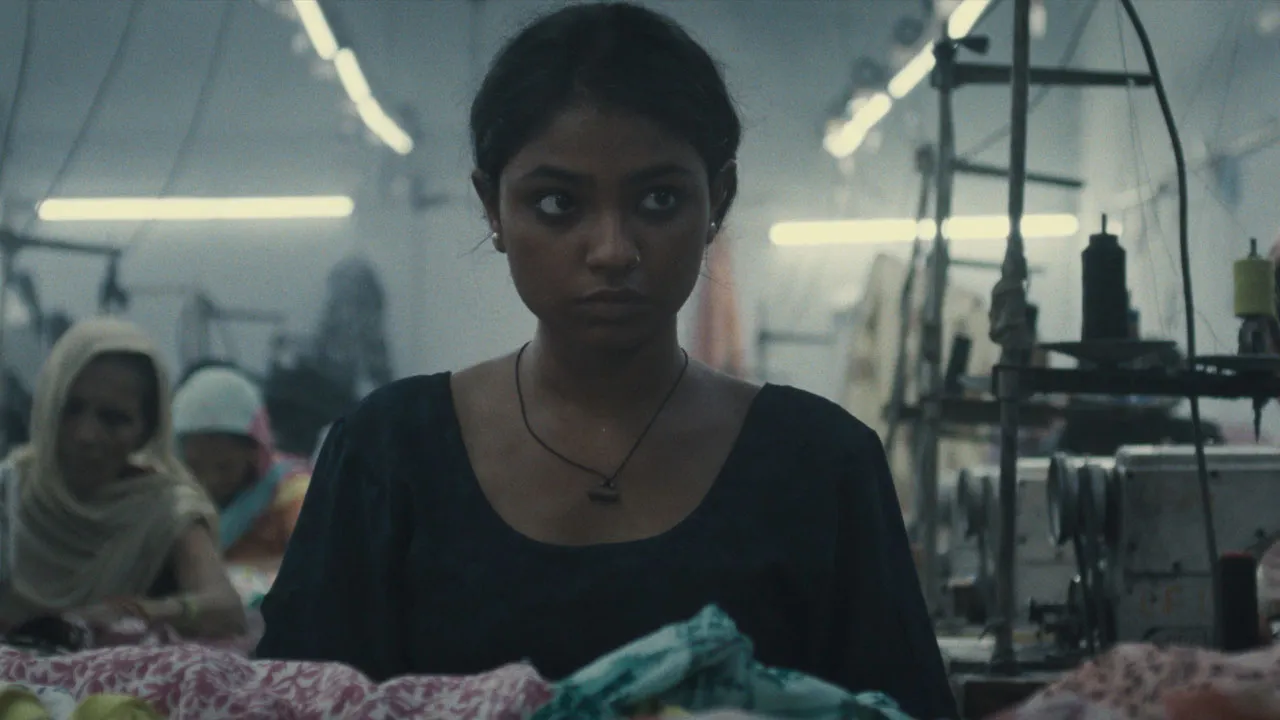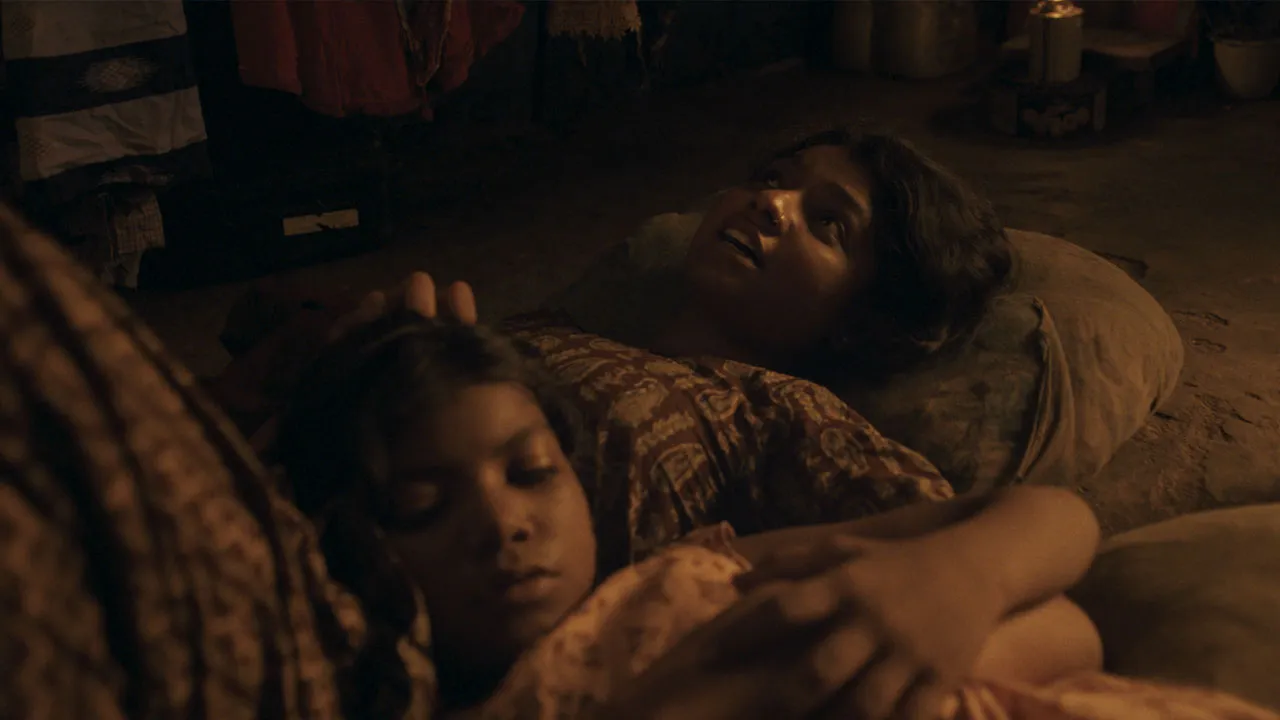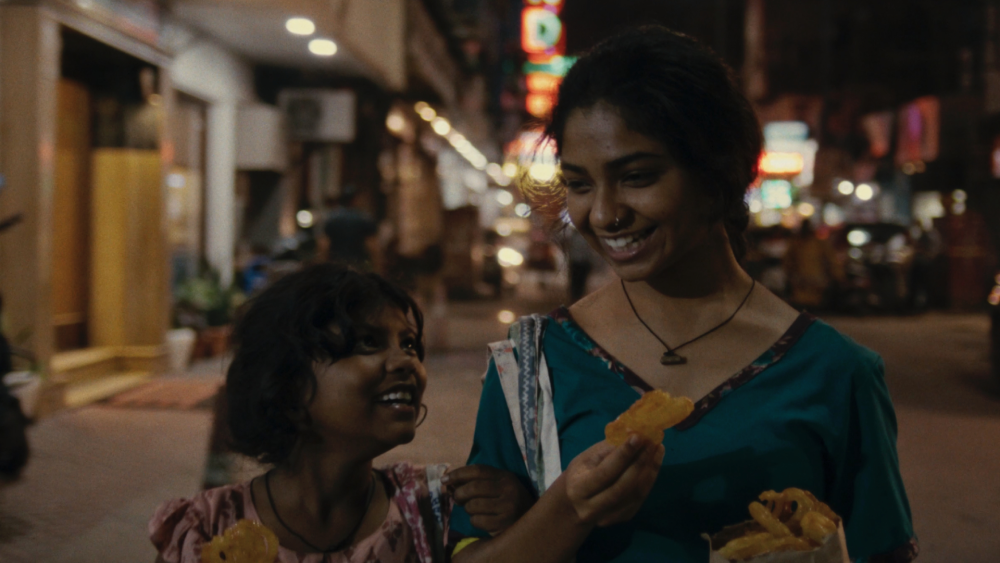Directed by Adam J. Graves, Anuja is a compelling film that narrates the story of a young girl fighting against systemic barriers to escape a cycle of poverty and despair. The film was created with the support of the Salaam Baalak Trust, a nonprofit organization dedicated to uplifting underprivileged children in New Delhi.
Through Anuja’s journey, the film critiques the capitalist system and exposes the harsh reality that breaking free from poverty requires more than just talent and opportunity—it demands immense sacrifice and perseverance. Anuja argues that while opportunity may exist, seizing it is a privilege not afforded to all.
Anuja and her elder sister, Palak, shared a profound and unshakable bond. Palak, having taken on the role of a guardian after the loss of their mother, did everything she could to provide for Anuja and ensure her well-being. The sisters worked long hours in a garment factory, earning a meager wage that was barely enough to sustain them.
Despite their struggles, they found solace in each other’s company, and their love kept them going through the harshest circumstances. Unlike many others, they did not harbor grand aspirations; they accepted life as it came, making the best of what little they had.
Palak, however, recognized Anuja’s immense potential. She saw her sister’s brilliance, particularly in mathematics, and dreamed of securing a better future for her through education. She did not despise the work they did but was aware of how society looked down upon girls like them. Palak wanted to see her sister escape this grim reality, but Anuja herself remained unaware of how drastically her life could change through education.

A Sister’s Sacrifice and a Cruel Choice Between Love and Opportunity
One day, a teacher named Mr. Mishra visited their employer, Mr. Verma, with an offer that could change Anuja’s fate. He proposed that Anuja sit for an admission test to enroll in a prestigious school, where her education would be fully funded. However, Mr. Verma, a greedy and selfish man, was reluctant to let Anuja go, fearing that her absence would result in financial losses for his business.
Despite this, Mr. Mishra encouraged Anuja to take the test, convinced that it could transform her life. Palak, determined to see her sister succeed, began secretly making and selling bags from leftover fabric during her work hours. This initiative allowed them to save 400 rupees, just enough to cover the examination fee. Anuja was hesitant, unsure why Palak was willing to invest so much in an uncertain future. However, their love for each other overcame all doubts, and Anuja ultimately agreed.
To make up the remaining amount, Anuja sneaked into a shopping mall and managed to sell two handmade bags to a wealthy woman for 800 rupees. That night, the sisters celebrated their small victory with snacks and a rare trip to the movies, momentarily escaping their daily hardships. The joy they felt was simple yet profound—an expression of pure happiness that they seldom experienced.
Just as Anuja prepared for her test, Mr. Verma devised a cruel plan to keep her under his control. Aware of her intelligence, he asked her to solve a complex mathematical problem, which she did with ease. Instead of encouraging her, he decided to exploit her skills. He announced that she would no longer be working at the sewing machine but instead managing his accounts. His timing was deliberate—he scheduled her first day of work to coincide with her exam, making it impossible for her to attend.
Mr. Verma’s manipulation went beyond mere financial concerns. He wielded power over the sisters by threatening to fire Palak if Anuja failed to show up at work. This put Anuja in an agonizing position. Her loyalty to Palak clashed with the opportunity to escape their current life, forcing her into an impossible choice.
Anuja faced an emotional battle between pursuing her education and protecting her sister. Unlike those with privilege, she had no support system to help her make the right decision. Her understanding of the long-term benefits of education was limited, and the immediate consequences of defying Mr. Verma loomed over her. To her, the happiness and well-being of her sister mattered more than anything else.
Standing at the alley’s end, Anuja watched as Palak entered the factory. She remained frozen, torn between duty and desire, unsure of whether to follow her sister or take the test. The film ends on this poignant cliffhanger, leaving the audience to speculate about her final decision.
The film subtly critiques the notion that success is merely a matter of effort and opportunity. It highlights the privilege of choice—something that many underprivileged individuals do not have. Anuja’s hesitation is not due to a lack of ambition but a consequence of her circumstances.
The burden of responsibility, fear of repercussions, and deep love for her sister create barriers that make seizing an opportunity nearly impossible. Her story resonates with countless others who face similar struggles, bound by their realities rather than a lack of will.

Sacrifice Misjudgment and Fate The Tragic Paradox of Unrecognized Loyalty
Throughout the film, Palak often recounted the tale of a mongoose trusted to guard a family’s child. One day, when a snake attacked the baby, the mongoose valiantly fought and killed it. However, when the parents returned, they misunderstood the bloodstains on the mongoose’s face and beat it to death before realizing the truth.
This story mirrors Anuja’s life—she had the chance to change her fate, but her devotion to Palak held her back. Like the mongoose, she made a selfless decision, prioritizing love and loyalty over personal gain, even if it meant sacrificing her future.
Anuja’s story is a stark reminder of the complex realities faced by underprivileged individuals. It challenges the simplistic belief that success is within everyone’s reach, exposing the societal and emotional constraints that keep people trapped in poverty. Without the right guidance and support, many like Anuja remain unable to grasp the opportunities that come their way, despite having the talent to succeed.
While the film leaves Anuja’s fate uncertain, it serves as a wake-up call for society. It urges us to acknowledge the barriers that prevent marginalized individuals from realizing their potential and to offer not just opportunities but also the means to embrace them.
Anuja is not just a film—it is a reflection of real-life struggles, a testament to the resilience of the human spirit, and a plea for systemic change. It reminds us that success is not just about having talent but about having the right support and circumstances to turn potential into reality.



